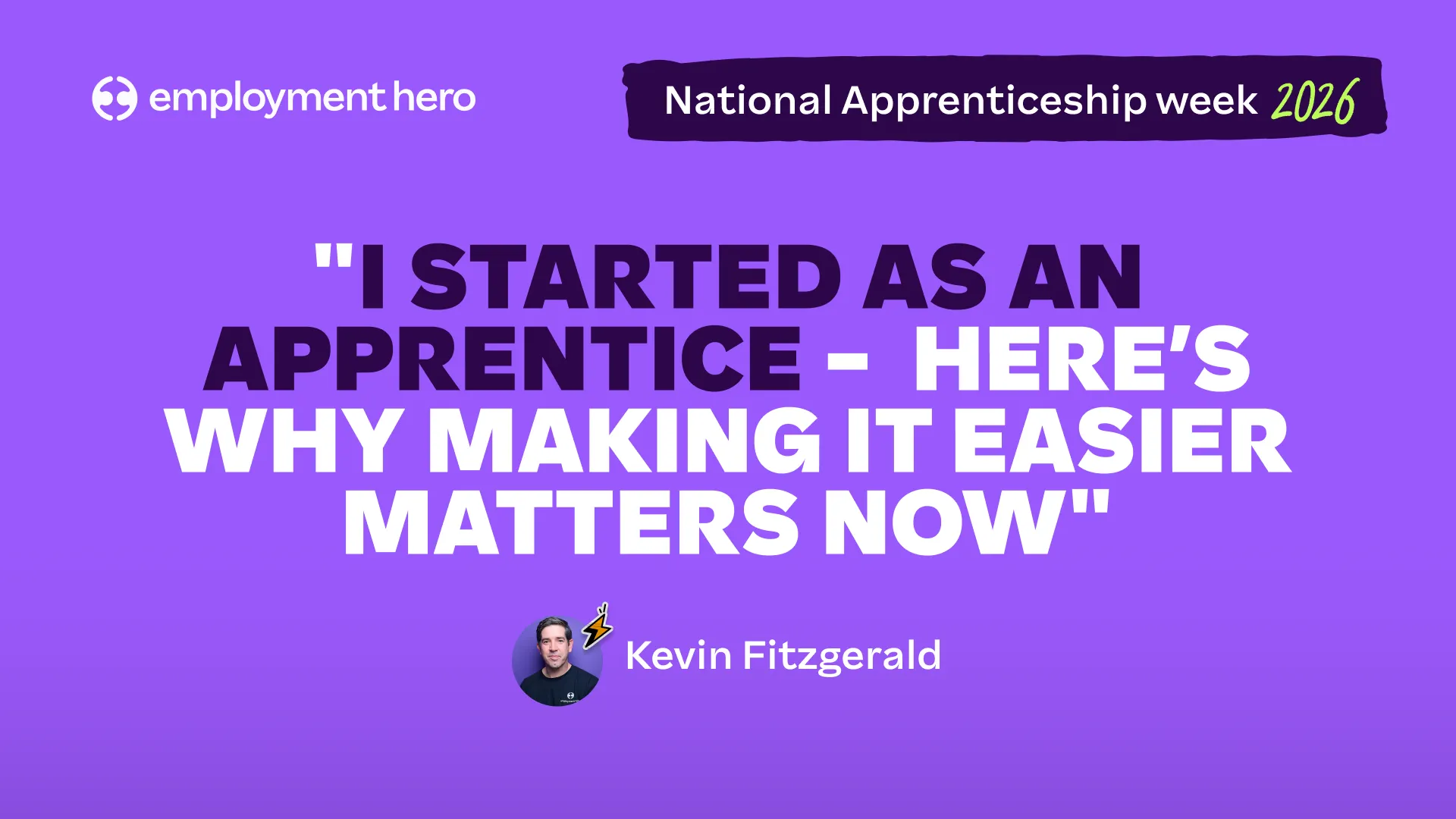What is time off in lieu (TOIL) in the UK?
A brief guide to managing time off in lieu

Ever heard employees taking time off in Lieu? If you’ve ever wondered where that is, we’re here to tell you that Lieu is not a place – it’s actually a way for an employee to claim back extra time worked. A flexible solution to modern working styles, it allows employers and employees to negotiate working hours in a way that works for them and improves work life balance. In simple terms, time off in lieu (TOIL) can be given to an employee when they have worked over their normal working hours, and they can take the time off instead of being paid overtime. While there are clear benefits such as improving mental health – employers can save the expense of overtime and employees can get some downtime after working extra hours – without proper policies and processes in place, it can easily get out of hand and taken advantage of. In this blog we’ll look at how best to approach time off in lieu, how to administer it, and what you need in a TOIL policy.
What does time off in lieu mean?
Time off in lieu comes from the French term ‘in lieu’ which means ‘instead of.’ Time off in lieu means that the employee can have time off instead of being paid for the additional hours worked.
How to administer time off in lieu
The ideal way to manage and administer time off in lieu would be to have a clear policy which sets out the terms of TOIL, plus accurate time-tracking HR software to keep things transparent and streamlined. When an employee needs to work extra hours, such as carrying out seasonal out of hours work or extra work to meet a deadline, they can then record the extra hours worked in the time logging system or in their timesheet. Once the time is recorded, the amount of time owed back to the employee can be easily calculated. If their normal working hours are 40 hours per week and they work 48 hours in a particular week, they will be entitled to take 8 hours off in lieu. If they don’t take the 8 hours, it can be banked and used in a similar way to their holiday entitlement. Requests for TOIL can be formal, such as submitting requests for time off via a leave request system, or informal arrangements between the employee and employer. Either way, the employee and employer must agree on when the time off will be taken. Having a TOIL policy in place enables employers to set parameters around when TOIL can be taken, which can prevent any confusion or any liberties being taken.
Is time off in lieu a legal requirement?
Employers do not have to pay workers for overtime, and as an employer, you have no obligation to offer time off in lieu. However, by law, the average pay for the total hours an employee works must not fall below the National Minimum Wage. It is also considered good practice to give employees time off when they have worked additional hours or gone above and beyond their normal working hours for the benefit of the business. Time off in lieu is still regulated by the UK Working Time Regulations, which means that unless employees contractually agree to opt out, they don’t have to work more than 48 hours a week. As long as employers are not forcing employees into working extra hours against their will, without pay or without getting the time back, then there’s nothing to be concerned about.
What is a time off in lieu (TOIL) policy?
A TOIL policy is a written statement which sets out the arrangements and protocols in place regarding working time, leave entitlements and overtime. It recognises that employees may need to work outside normal working hours from time to time, but also recognises that for the health, safety and wellbeing of the employees, they may be entitled to claim the hours back so that they aren’t working excessive hours. It should clearly state how any additional hours worked should be monitored and recorded as well as agreed in advance between the employer and employee. To avoid employees working excessive extra hours so as to accrue time to take off as holiday leave, employers can consider including a clause which clearly states how much time can be accrued as TOIL. As an employer, you may have a standalone policy on TOIL, but you may also choose to include it as a written term within a contract of employment between employer and employee. Again, it is prudent to be clear about how much TOIL can be accrued, and when TOIL must be taken – such as within a certain time period of the extra hours worked. There may be reasons for having different TOIL policies for different groups of employees or different seniority levels. However, it is extremely important that as an employer you don’t discriminate by offering some members of the same group better working conditions than others, or preventing some employees from working overtime and not others.
Do employees get paid for time off in lieu?
Employees are not paid for time off in lieu. If an employee is paid extra for extra hours worked, this is usually considered overtime. With TOIL, the time off is in lieu of payment.
Can employers refuse time off in lieu?
Employees have a legal right to take time off based on health and safety, and welfare law. Importantly, employees are more productive when they can accommodate their personal life alongside their career. Employers should not make it too difficult for employees to take leave, although they are entitled to dictate when employees take leave, so long as it is not discriminatory. Depending on the justification or business case, employers have the right to forbid leave at busy times of year (such as the run-up to Christmas), or refuse leave where critical tasks would be jeopardised. Get to grips with leave entitlement with our handy leave management guide. The employment contract or TOIL policy may regulate time off in lieu, but employers do have the final say when it comes to TOIL requests. Managers should pay close attention to leave requests and rosters in order to ensure that any time off requests, including TOIL, do not disrupt business operations. If the employee is entitled to TOIL as part of their contract and they have requested time off within the appropriate time frame, such as within the same financial year or the time period specified in their contract or TOIL policy, it is unreasonable to refuse them time off. It may even breach employment legislation, so employers should take great care to agree with their employees when would be an acceptable or appropriate time to take the time off in lieu. Unless the employment contract guarantees overtime, an employer may prevent employees from working it. But be mindful that employers cannot discriminate against anyone, such as stopping some employees from working overtime while letting others do so.
How much TOIL can employees accrue?
The amount of time off that employees can accrue is up to the employer, bearing in mind that the Working Time Regulations may apply (and also cover TOIL).
Do lieu days expire?
Lieu days can expire if the employer places expiration restrictions on TOIL via employment contracts or TOIL policies. It’s a good idea to do this so that TOIL entitlements don’t roll over from one period or one year to the next.
What happens if an employee leaves the company with excess TOIL?
If the employee is unable or unwilling to take TOIL before they leave the company, you’ll be obliged to pay them the equivalent in overtime pay at their standard rate of pay. This is why it’s important to have a transparent system for tracking and recording time worked to accurately calculate TOIL.
What is the difference between time off in lieu and annual leave?
The difference between time off in lieu and annual leave lies in how they are earned and used:
- Time Off in Lieu (TOIL): TOIL is earned when an employee works extra hours beyond their normal schedule, and instead of their employers paying overtime, they are compensated with equivalent time off. For example, if an employee works two extra hours on one day, they might take two hours off on another day. TOIL is typically agreed upon between the employer and the employee on a case-by-case basis.
- Annual Leave: Annual leave is a set amount of paid time off that employees are entitled to each year, as mandated by employment law or company policy. This leave is pre-determined and does not depend on extra hours worked.
Are there any alternatives to offering time in lieu?
An alternative to offering TOIL is to pay employees overtime if they are expected or required to work additional hours.
Choosing between paid overtime vs time off in lieu
Choosing TOIL is likely to be more beneficial for the employer as costs are avoided when a company doesn’t have to pay overtime rates —which can be a standard hourly rate, time and a half, or even double time.
Benefits of overtime pay
The benefits of using overtime include having a clear system to manage busy periods, unexpected absences or cover staff shortages without having to recruit additional staff. As employees are paid overtime, it can increase employee satisfaction and ensure business continuity where the workload is difficult to roster or where out-of-hours repairs and maintenance are required.
Benefits of a time off in lieu policy
For many businesses, certain periods of the year are busier than others. When seasonal demands fluctuate, it is beneficial to have a clear system in place where employees can work extra hours or days and then claim the time back in less demanding periods. This can smooth out fluctuations, take off pressure from the wider team, and increase productivity and staff wellbeing by allowing employees down time in exchange for extra hours worked.
How can employers best manage time off in lieu?
It’s important to make sure that any time off is requested and authorised by managers in advance in order to prevent unauthorised time off. Where employees are able to claim TOIL, it’s important to have measures in place to avoid employees being tempted to put in longer hours unnecessarily to bank more time off.
Limiting time off in lieu during busy periods
Limiting TOIL during busy periods helps to prevent resourcing issues. Employers and managers need to have good oversight of rosters and leave requests to ensure they can plan accordingly and have sufficient staff cover.
Can an employer force employees to take time in lieu?
An employer can agree to offer TOIL to their employees either in TOIL policies or in their employment contracts. However, you cannot force an employee to take paid time off. As we’ve highlighted, it’s sensible to place a time limit on when employees need to use their accumulated TOIL by. But if an employee doesn’t want to take it, you can’t force them. Still, overtime and TOIL is subject to the UK Working Time Regulations, which means no employee can work more than 48 hours a week unless they sign a written opt-out agreement. If an employee was to work more than this, the employer could face penalties.
Implementing a time off in lieu policy
When it comes to implementing a flexible work policy such as a TOIL policy, the first thing you want to think about is what works for your business. Once you determine what types of work will benefit your business (and your employees), you can think about implementing a policy! You can learn more about implementing a flexible work policy with our handy guide. At the end of the day, it’s important to remember that employees need time off. Apart from being a legal right, it’s important for their wellbeing. When there is a good balance between home life and work life, this will benefit you as an employer too in terms of performance, productivity, morale, motivation and employee health. Well rested employees means higher performing teams, less accidents, and less days lost to stress, injury and sickness. Flexible work practices like TOIL can reduce absenteeism and stress, improve morale, increase employee happiness and improve staff retention. Whether you choose to implement a TOIL policy or provide TOIL via employment contracts, it’s important to be clear about what the expectations and responsibilities are. Old-fashioned and outdated HR admin processes are vulnerable to human error – they are not an ideal option to track leave to the degree of accuracy and transparency needed. Our top tip is to use smart, streamlined HR software to track time and manage TOIL so that hours worked and leave taken are accurately recorded. When you can categorise each absence type (sick leave, TOIL, absence leave), this will help reporting and trend monitoring. And of course, policies and processes can also be stored centrally so that your employees have easy access to the information they need.
Related Resources
-
 Read more: 7 Ways Employment Hero Can Help You Retain Top Talent
Read more: 7 Ways Employment Hero Can Help You Retain Top Talent7 Ways Employment Hero Can Help You Retain Top Talent
Contents Retaining top talent in 2026 is about more than providing a positive workplace culture; employees are looking for jobs…
-
 Read more: Bradford Factor Alternatives: Practical Ways to Manage Absence in 2026
Read more: Bradford Factor Alternatives: Practical Ways to Manage Absence in 2026Bradford Factor Alternatives: Practical Ways to Manage Absence in 2026
Discover smarter absence management strategies for 2026. Explore Bradford Factor alternatives that focus on employee wellbeing and building a resilient…
-
 Read more: Government red tape risks blocking youth jobs as SMEs look to access apprenticeship scheme
Read more: Government red tape risks blocking youth jobs as SMEs look to access apprenticeship schemeGovernment red tape risks blocking youth jobs as SMEs look to access apprenticeship scheme
February 9, 2026: New Employment Hero research finds 73% of SME leaders intend to leverage new Government apprenticeship schemes following…





















